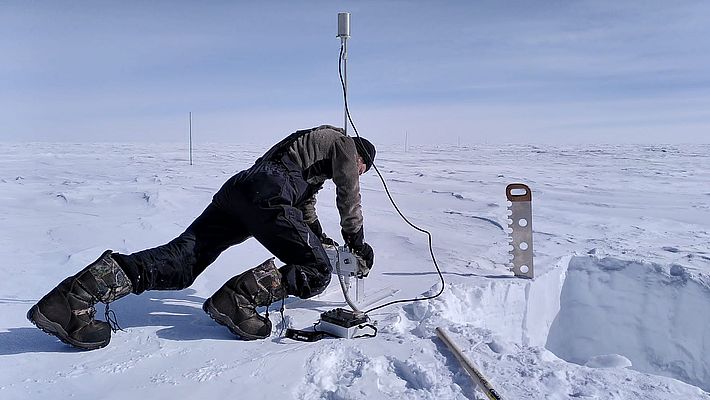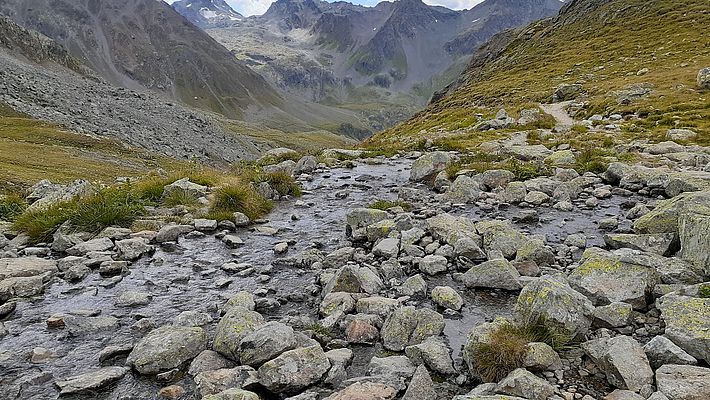Highly complex material, natural hazard, economic resource or part of the global climate system – at the SLF we investigate all these aspects of snow.
At first glance, snow may appear to be simply a homogeneous, white mass that covers the landscape in winter. But examined more closely, it is actually a complex and constantly changing material. This change in snow, known as 'snow metamorphism', is investigated in our cold laboratories using state-of-the-art measuring methods. This helps us to better understand how and when avalanches develop. However, it is not only avalanches that pose a threat to people and infrastructure: melting snow can also be dangerous if it contributes to the formation of floods. Yet snow is also an important economic resource. Whether for winter sports or as a source of water for energy and agriculture, it is an integral part of life in many regions.
Snow and climate ¶
Snow is often near its melting point in normal winter temperatures. As a result, snowpack is sensitive to climate changes. Higher temperatures or changes in precipitation levels lead to changes in the extent, thickness and density of the snowpack. Thanks to many years of measurements, we are able to identify these changes. More recently, we have increasingly been supplementing ground measurements with remote sensing data from satellites, aircraft and drones, which also provides information on the large-scale distribution of the snowpack. Snowpack influences the global climate, for example by changing the Earth's radiation balance.
At the SLF we investigate all aspects of snow using measuring methods that have proved themselves over decades as well as state-of-the-art measurement instruments, many of which we develop ourselves or adapt to the special requirements of snow research. Our measurements are carried out in laboratories and on test sites in the Davos region, but also throughout Switzerland and even worldwide, for example in Greenland or in the polar regions.








